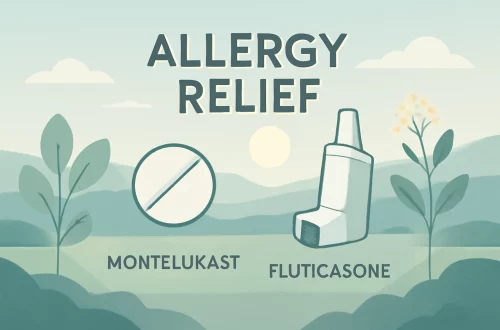
Find CT Scan Services for Dogs Near You Today
Finding the right diagnostic services for your pet can be a daunting task, especially when it comes to advanced imaging techniques like CT scans. As pet owners, we want to ensure that our furry friends receive the best possible care, and sometimes that involves seeking specialized services that may not be readily available in every veterinary clinic. A CT scan, or computed tomography scan, is a valuable tool that helps veterinarians diagnose various health conditions in dogs by providing detailed images of the body. This advanced imaging technique can reveal problems that may not be detected through traditional X-rays or physical examinations.
Understanding the importance of timely and accurate diagnosis can significantly impact your dog’s treatment and recovery. Whether your pet is experiencing unexplained symptoms, recovering from an injury, or undergoing a routine health assessment, a CT scan can provide crucial insights. The process of finding CT scan services for dogs requires some research, but knowing what to look for and where to find these services can simplify your search. In this article, we will explore various aspects of CT scan services for dogs, helping you make informed decisions about your pet’s health and well-being.
What to Expect During a CT Scan for Your Dog
When your dog is scheduled for a CT scan, it’s natural to wonder what the process will entail. Understanding the procedure can help ease any anxiety you may have. First and foremost, a CT scan is a non-invasive imaging technique that typically requires your dog to be sedated. This sedation is crucial as it ensures that your pet remains still during the scan, allowing for clear and accurate images to be captured.
Before the scan, the veterinary team will conduct a thorough examination and explain the procedure to you. They may also ask about your dog’s medical history and any specific symptoms you’ve noticed. Once your dog is sedated, they will be placed on a padded table that moves through the CT scanner. The machine uses X-ray technology and advanced computing to create cross-sectional images of your dog’s body.
The duration of the scan is usually quick, often taking only 30 minutes to an hour. However, including the preparation time and recovery from sedation, you should expect to spend more time at the veterinary clinic. After the scan, the images will be analyzed by a veterinary radiologist who specializes in interpreting CT scans. They will provide a detailed report to your veterinarian, who will discuss the findings and any necessary next steps.
It is essential to follow any pre-scan instructions provided by your veterinarian, such as fasting your dog for a certain number of hours before the procedure. This preparation helps ensure the best possible results. Overall, understanding the CT scan process can alleviate concerns and pave the way for better communication with your veterinary team.
Finding Local CT Scan Services for Dogs
Locating CT scan services for dogs in your area may seem challenging at first, but there are several effective strategies you can use to find the right facility. Start by consulting with your primary veterinarian. They can provide recommendations based on their network of specialists and practices that offer advanced imaging services. Your vet’s guidance is invaluable as they understand your dog’s specific health needs and can refer you to reputable facilities.
Another excellent resource is online veterinary directories and databases. Websites dedicated to vet services often have search functions that allow you to filter results by location and specialty. Look for facilities that specifically mention advanced imaging or CT scan services. Additionally, consider checking reviews and testimonials from other pet owners. This feedback can help you gauge the quality of care provided at different clinics.
Social media platforms and local pet owner groups are also great places to seek recommendations. Many pet owners share their experiences and can provide insights into the quality of care and service they received. If you have friends or family members who have gone through similar experiences, don’t hesitate to ask for their advice.
Lastly, once you have identified potential facilities, consider contacting them directly. Inquire about their services, equipment, and the qualifications of the veterinary team. This direct communication can provide you with a sense of comfort and assurance in choosing the right CT scan service for your dog.
Understanding Costs Associated with CT Scans for Dogs
When it comes to your pet’s health, understanding the financial aspect is crucial. The cost of CT scans for dogs can vary significantly based on several factors, including the geographic location, the veterinary facility, and any additional services required. On average, you can expect to pay anywhere from a few hundred to over a thousand dollars for a CT scan.
One of the primary reasons for this cost variation is the technology and equipment used. State-of-the-art veterinary clinics with advanced imaging capabilities may charge higher fees due to the quality of care and precision they offer. Additionally, if your dog requires sedation or anesthesia, this will add to the overall cost of the procedure.
It’s also important to consider any additional diagnostic services that may be necessary before or after the CT scan. Blood tests, consultations, and follow-up treatments can all contribute to the total expense. Before proceeding with the CT scan, discuss the pricing with your veterinarian and inquire if there are any payment plans or financing options available.
Pet insurance can also help mitigate costs, so if you have coverage, check with your provider to see if CT scans are included in your policy. Being proactive about understanding the financial implications will help you make an informed decision regarding your dog’s diagnostic needs.
Post-CT Scan Care and Considerations
After your dog undergoes a CT scan, there are several important considerations to keep in mind for their post-procedure care. While the scanning process itself is relatively straightforward, the aftermath may require some attention, especially if your pet was sedated.
Once your dog wakes up from sedation, they may feel groggy or disoriented. It’s important to provide a quiet and comfortable space for them to rest. Monitor your dog closely for any unusual behavior or signs of distress, such as excessive panting, vomiting, or difficulty walking. If you notice any concerning symptoms, don’t hesitate to contact your veterinarian for guidance.
Your vet will provide specific post-scan instructions, which may include dietary recommendations or activity restrictions. It’s common for vets to recommend limiting your dog’s physical activity for a short period following the procedure. This precaution helps ensure that your pet recovers without complications.
Additionally, be prepared for a follow-up appointment to discuss the CT scan results. Your veterinarian will interpret the images and provide insights into any findings. Depending on the outcomes, they may recommend further diagnostic tests or treatments.
Overall, being attentive to your dog’s needs after a CT scan is crucial for their comfort and recovery. Ensuring a smooth post-procedure experience will help your pet return to their normal routine as quickly as possible.
In conclusion, while this article provides valuable information about CT scan services for dogs, it is not intended as medical advice. For any health-related concerns regarding your pet, always consult directly with a qualified veterinarian. Your vet is the best resource for accurate diagnosis and appropriate treatment options for your dog’s specific health needs.




